This section is dedicated to the actual programme and how you can become an ESOL teacher - (English to Speakers of Other Languages). We will be going briefly through the steps of the CELTA programme, so you can better understand the stages and what the programme is actually about.
CELTA Course Programme
The CELTA has four main components and covers five main topics. The components consist of input sessions, teaching practice, guided lesson planning, and feedback on teaching. More than certifying you as an ESOL teacher, the CELTA benefits you in numerous ways:
1. It gives you practical, hands on experience
2. It teaches you the principles of effective language teaching
3. It provides you with a range of practical skills you can employ in various teaching situations

Practical workshops and seminars
Input sessions are in the afternoon. There are 120 contact hours in the course including workshops and seminars which focus on language awareness, phonology, language learning, teaching methodology and professional development, all valuable skills and resources for an ESOL teacher. A breakdown of input sessions and how they correspond to the timetable is set out in the next section.
Topics
An ESOL teacher needs to be more than just a good English language speaker, he needs to understand the learning-teaching process, and, obviously, the students. The topics cover:
1. Learners and teachers, and the learning and teaching context
2. Language awareness and analysis
3. Language skills: listening, speaking, writing, and reading
4. Planning resources for different contexts
5. Developing teaching skills and professionalism
Written assignments will be set during input sessions and the times they are set and are to be submitted are clearly marked in the notes of the timetable. You will complete a total of 4 written assignments during the course: one on classroom skills, one on the system of the English language, one on language skills, and one on adult learners.
Teaching practice and feedback
This is the part where future ESOL teachers have their first contact with the real teaching world, in a friendly environment which allows them to try and observe different teaching techniques.
Teaching practice will be in the morning and trainees will have an aprox.15 minute break before feedback. This will allow the last teacher time to complete their post lesson evaluation before getting any feedback. You will teach six hours of classes attended by volunteer adult learners of English.
In a feedback session you will discuss the lessons taught and receive individual verbal and written feedback from tutors. At the beginning of the course feedback and lesson planning will be more guided thus allowing more time to be given to all trainees.
By the end of the course you will have taught two groups of real language students - pre-intermediate and upper-intermediate - for a total of six hours. These are groups of volunteer students who know that they are being taught by training teachers and are very cooperative, motivated students to teach.
Teaching practice is a valuable opportunity to put into practice all the ideas that you are learning throughout the course. When you are not teaching yourself, you will be observing your peers teach and completing observation tasks so that you can provide each other with useful and constructive feedback.
Many trainees find the teaching practice to be the most valuable part of the course as it lets them see they are ready to plan and teach enjoyable, meaningful lessons to their students. These are the first experiences that will show you what it feels like to be an ESOL teacher.
Observations of experienced teachers
You will observe a minimum of six hours of classes which may include two hours of video material. Trainees’ first observation of experienced teachers is the first day when they will observe their tutor teaching the level they are to teach the following day (2 hours). They will observe another 2 hours of live teaching on the first day of the handover in week three. A further 2 hours will be observed on DVD and this has also been scheduled in the timetable.
For the aspiring ESOL teacher, observing experienced teachers work is of utmost importance. It allows him to consolidate and fine-tune the information and skills acquired so far, to assess his own strengths and weaknesses, all part of the process of becoming a successful ESOL teacher.
Lesson preparation
Lesson preparation is initially supervised by the course tutors, but you are encouraged to work more independently as the course progresses. By the end of the course you should have a basic toolkit which allows you to teach effectively in an EFL classroom.
There is time for group lesson planning every day when your tutor will help you plan your lessons. After your teaching there is also oral feedback from your peers and both oral and written feedback from your tutor.
Excited about the programme? Get to know more on the subject of becoming an ESOL teacher, and learn about the CELTA course assessment.
GET IN TOUCH
Testimonials
“This course will be really useful when I go back to school and I hope my students will benefit from all I have learned.”
Marta J., Spain
“Although very intense, the CELTA course has to be where I have learned the most about teaching.”
Diana Graur, Romania
“I honestly can’t imagine teaching without the knowledge I’ve gained through the CELTA training.”
Ramona Ivan, Romania

